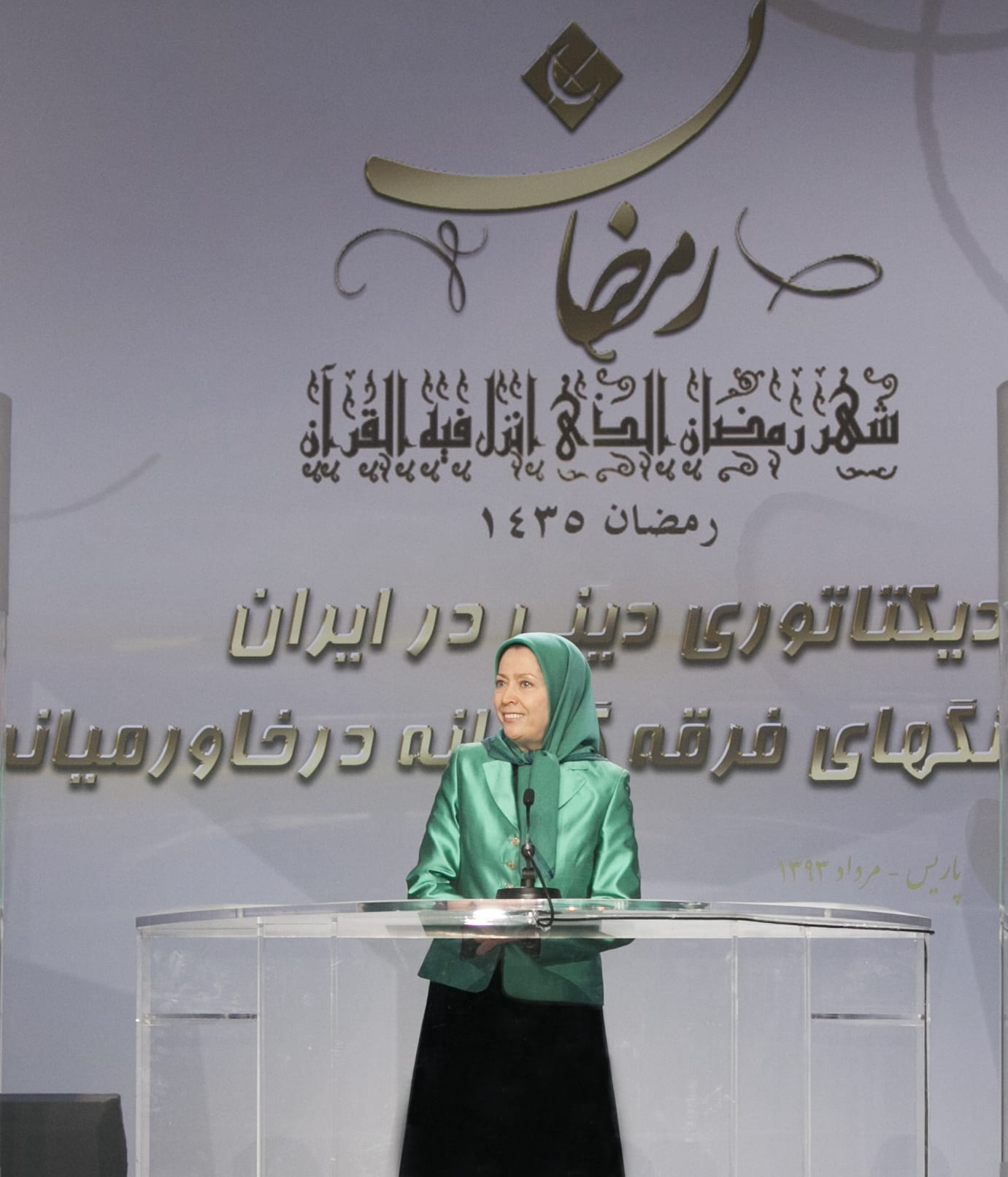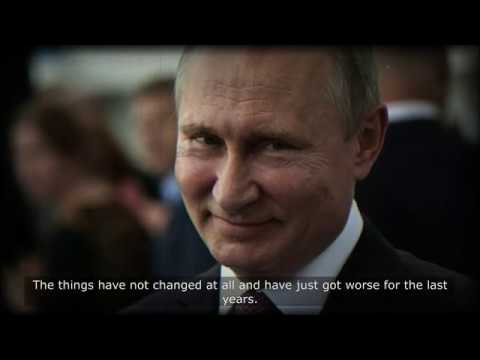July 26, 2014, PARIS, FRANCE – President-elect Maryam Rajavi of the Iranian Resistance was a featured speaker at the Religious Dictatorship in Iran Epicenter of Sectarian Wars in the Middle East International Conference.
She opened with greetings to all her brothers and sisters who have been praying and fasting during Ramadan, reiterating that it had been a month of solidarity with the people of Iraq, Syria and Iran who are rising against ruthless dictatorship. It is also a month of solidarity with the nations of Palestine and Lebanon, said Rajavi, “who have fallen victim to the betrayals of the ruling theocracy in Iran.”
“The Iranian regime’s dispatch of weapons, equipment and war planes to Iraq and Syria to preserve Maliki and Assad dictatorships is a violation of United Nations Security Council resolutions,” said Rajavi. She encouraged the world community to end its silence in this regard and force the clerical regime to stop sending weapons.
“As various sectors of Iraqi have declared, the only way out of the crisis in Iraq is to oust Maliki, evict the Iranian regime and set up a national unity government,” said Rajavi. “This revolution is Iraq’s new spring to end oppression. It has no links to terrorism and condemns it.”
She voiced the Iranian Resistance’s abhorrence over the oppression and aggression against Christians in Mosul and their support of the position of the Association of Muslim Scholars and Iraqi tribes in condemning the forced displacement of Christians. “This was a responsible, Islamic and humanitarian stance in the face of backwardness and extremism under the guise of Islam,” said Rajavi.
Historically, Shiites and Sunnis, as well as the minority of Christians in Iraq lived peaceably and had strong and deep ties through marriages and familial relationships. One of the symbols of this relationship was the protection of the shrines of Shiite Imams in Samarra by the Sunnis, as Rajavi pointed out.
According to the Association of Scholars, the suppression of Christians by the ISIS is “crimes against the innocents and departing from a path put forth by the Prophet of Islam in treating Christians and other followers of other religions.” The Association has called for a return of the Christians to their homes. The last speaker, representing Iraq at the conference, pointed out that Iraq did not need Iran’s help to protect the shrines and holy places within its borders, but that it was an excuse to extend their influence into Iraq.
Rajavi urged Arab and Muslim countries in the region to sever their political ties with the mullah’s regime in protest against its export of terrorism and fundamentalism, especially to Syria and Iraq, as well as its incitement of sectarian conflict in the Arab world, from Bahrain to Lebanon. Maghreb was noted for concluding it must cut its ties with the mullahs of Iran and Rajavi urged other Arab nations to follow its example, noting it would benefit their strategic interests.
Rajavi then went on to focus on religious sectarianism and the Shia-Sunni discord. “The regime ruling Iran is trying to subvert the momentous developments in Iraq that are occurring today.”
Describing the matter in Iraq as “an uprising by an oppressed nation against suppression, massacre and occupation,” said Rajavi. “The people of Iraq have arisen to liberate themselves from the domination of the Iranian regime and its puppet government in Baghdad. This uprising began peacefully in 2011, but was crushed by bullets, torture and executions.”
Rajavi pointed to mullahs’ oppressive domination of Iraq as being the negative roadblock, stopping the Iraqi nation from moving along the democratic path, creating national unity, security and rebuilding their country.


